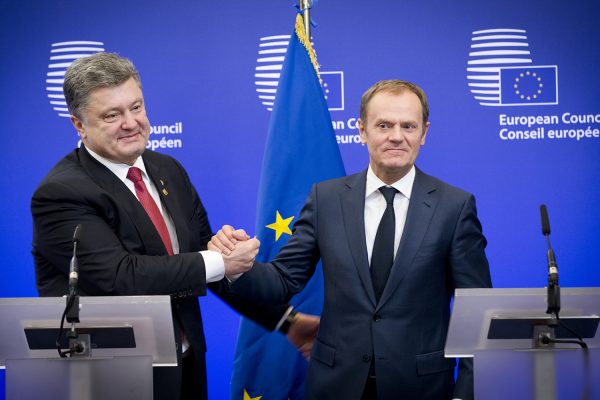
Few of the Dutch voters who will be participating in a referendum on Wednesday may understand much about the association agreement with Ukraine they are nominally asked to approve or reject.
Polls suggest only a third could turn out to vote, perhaps even less than the 30 percent needed to give the outcome any legal standing.
But of those who do intend to vote, half have made up their minds to say “no” — less to the treaty, though, than to the whole European project.
Even the initiators of the referendum aren’t really interested in Ukraine, telling the newspaper NRC that their real goal is to get the Netherlands out of the European Union.
Euroskeptics
“It reminds me of the Soviet Union now,” Pepijn van Houwelingen, one of organizers of the referendum campaign, said about the EU.
His Euroskeptic group teamed up with the populist blog GeenStijl last year to gather more than the 300,000 signatures needed under a new law to trigger a referendum.
It’s the first plebiscite held in the country since 2005 when 62 percent of Dutch voters rejected a proposed constitution for the EU.
Like the vote in 2005, Wednesday’s will not be binding. But a majority of the parties in parliament have said they will respect the outcome all the same.
Most, including Prime Minister Mark Rutte’s liberals, urge support for the agreement, arguing that it will benefit Dutch trade.
Only the far-left Socialist Party and the nationalist Freedom Party on the right oppose the treaty.
Membership
Despite assurances from Rutte and other European leaders, many in the Netherlands see the treaty as a stepping stone to EU membership.
Not without reason. Other former Russian client states in Eastern Europe signed similar agreements before joining the EU between 2004 and 2007.
It’s not that the Dutch have specific objections to Ukraine joining. It’s that most are skeptical of EU enlargement altogether and feel the bloc has been making decisions over their heads, from the 2005 “constitution”, which was rewritten as the Lisbon Treaty, to the bailouts of Greece, which a majority of Dutch people opposed.
Russia
The referendum is also a proxy for Dutch attitudes toward Russia.
Opponents accuse Europe of needlessly aggravating relations with what is one of the Netherlands’ largest trading partners.
“There was a coup [in Ukraine] and Russia supported the Russian population there, that’s another way of looking at it,” Arjan van Dixhoorn, another driving force behind the referendum campaign, told the NRC.
In reality, mass demonstrations in favor of the association agreement with the EU forced Ukraine’s relatively pro-Russian president, Viktor Yanukovich, to step down in early 2014.
A month later, Russia annexed the Crimea from its former satellite state.
But Van Houwelingen argued it wasn’t really an annexation at all because Russia organized a referendum of its own on the Black Sea peninsula.
Theirs is not a popular view. Russia is widely blamed in the Netherlands for an airline crash in eastern Ukraine that killed 193 Dutch tourists in 2014. Russian-backed rebels likely downed the jet with Russian-made weapons.
